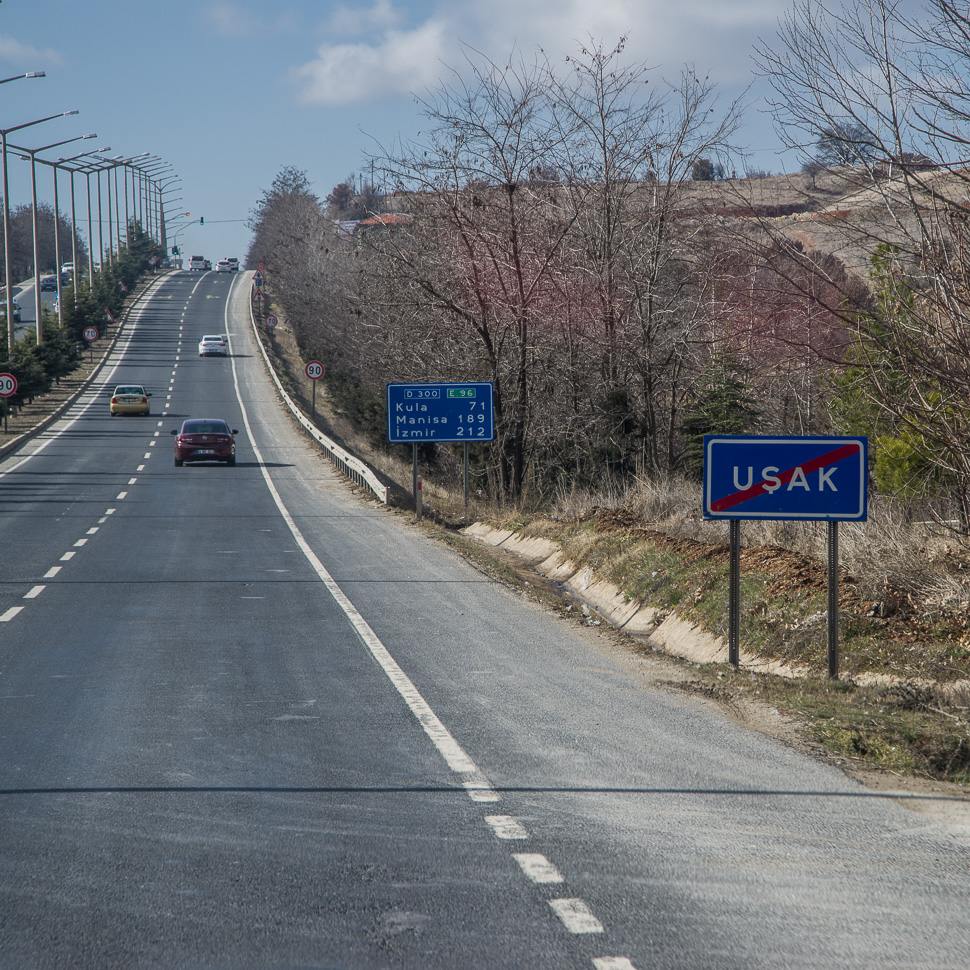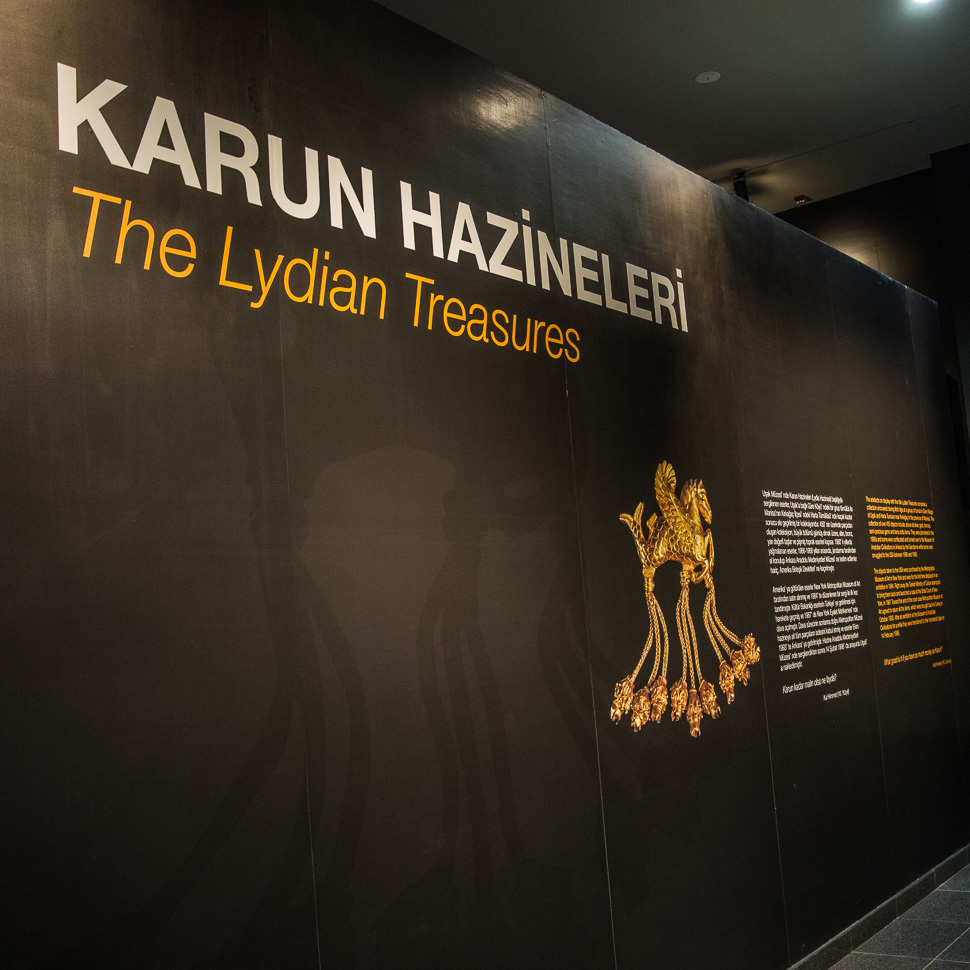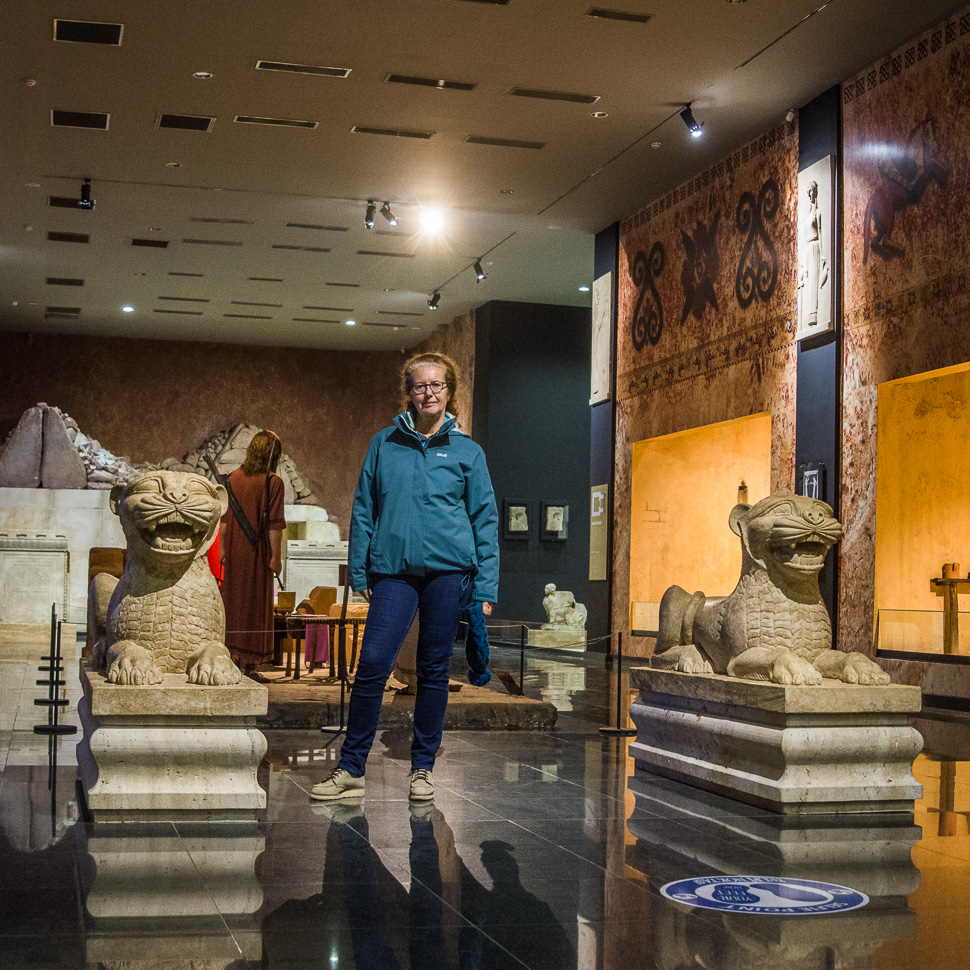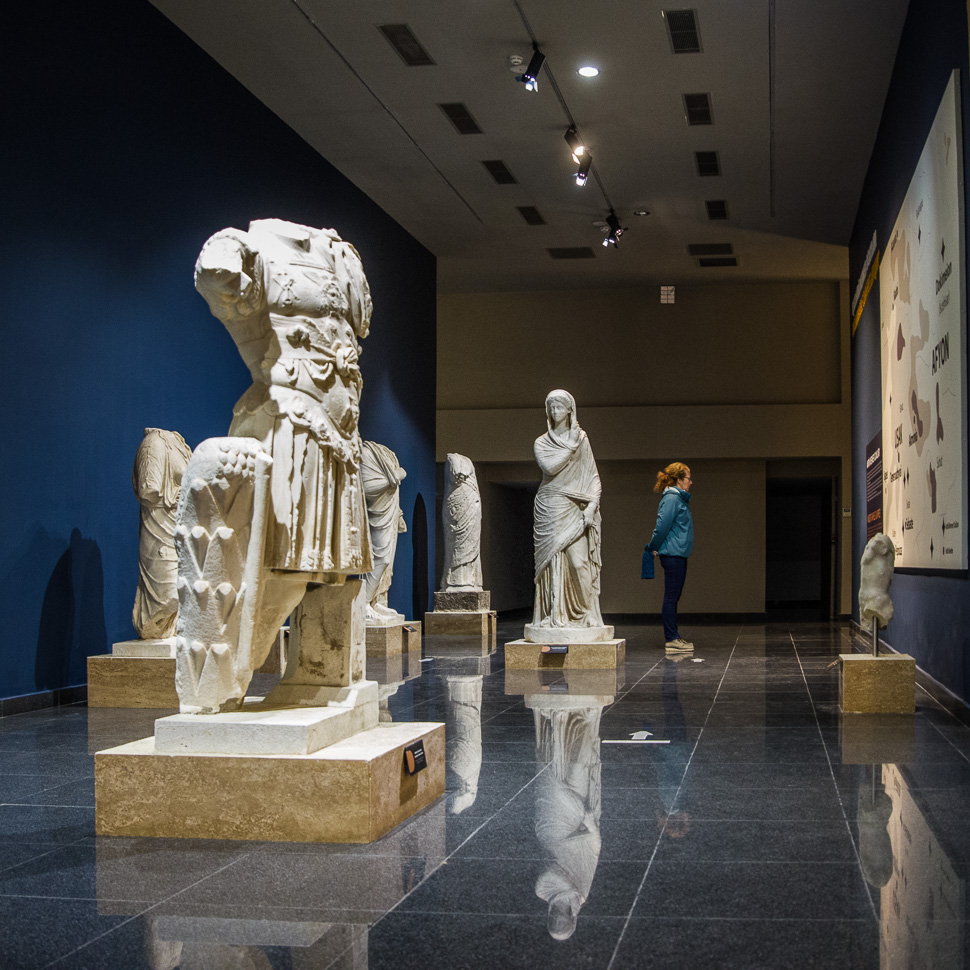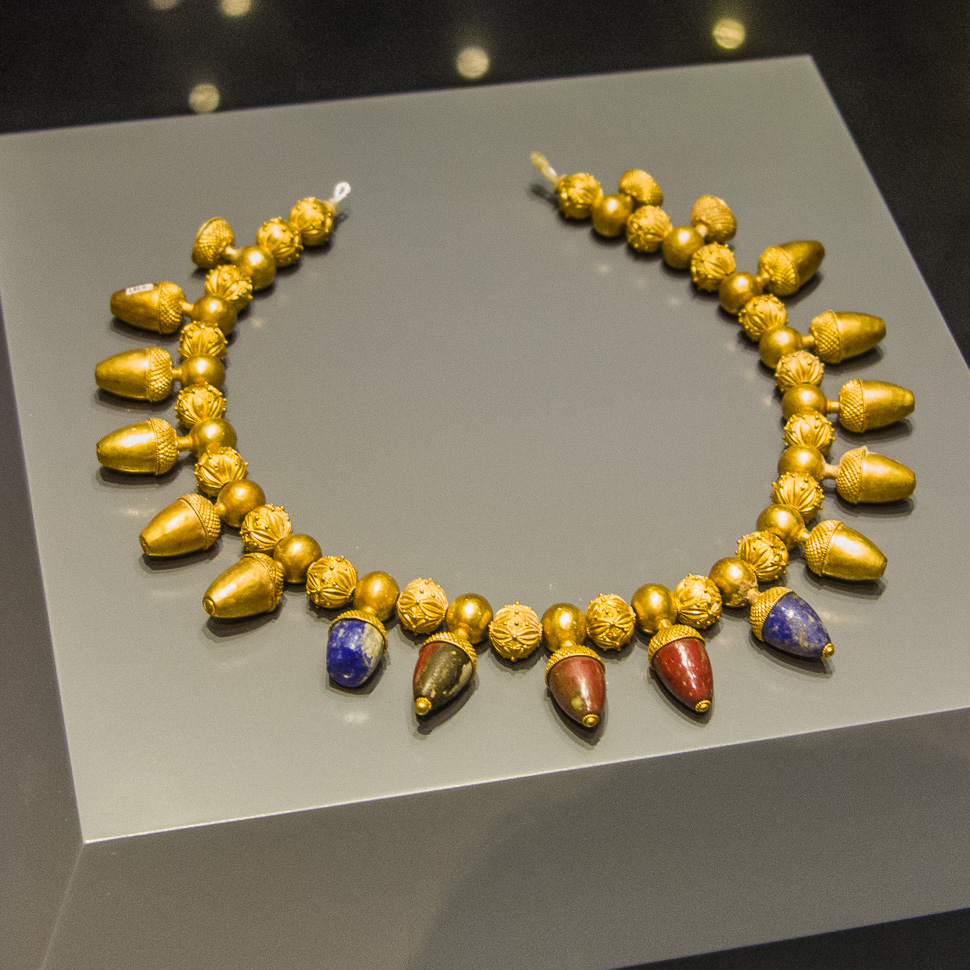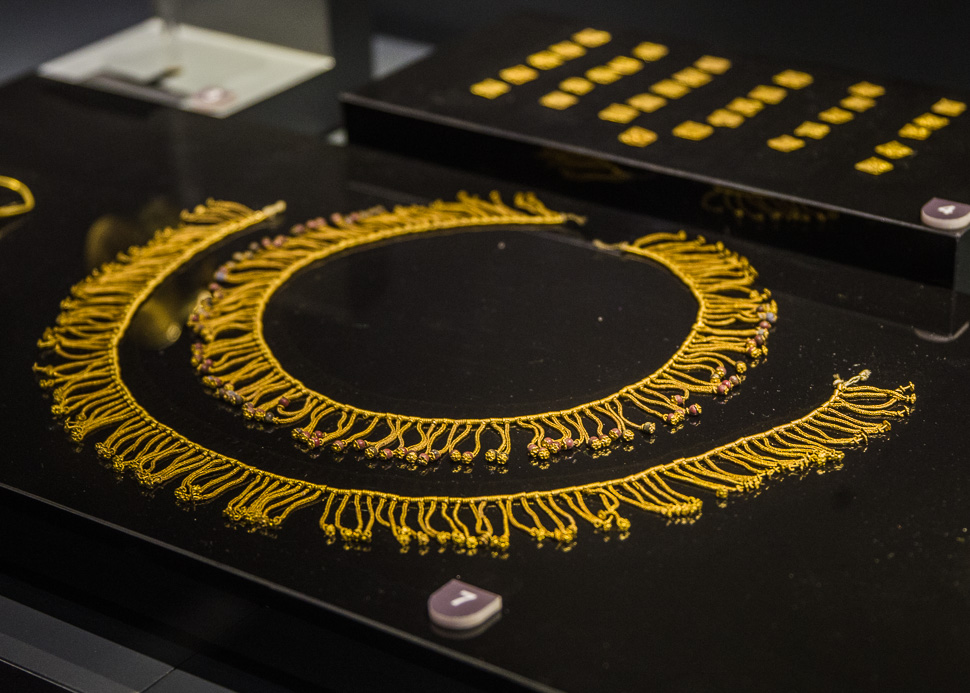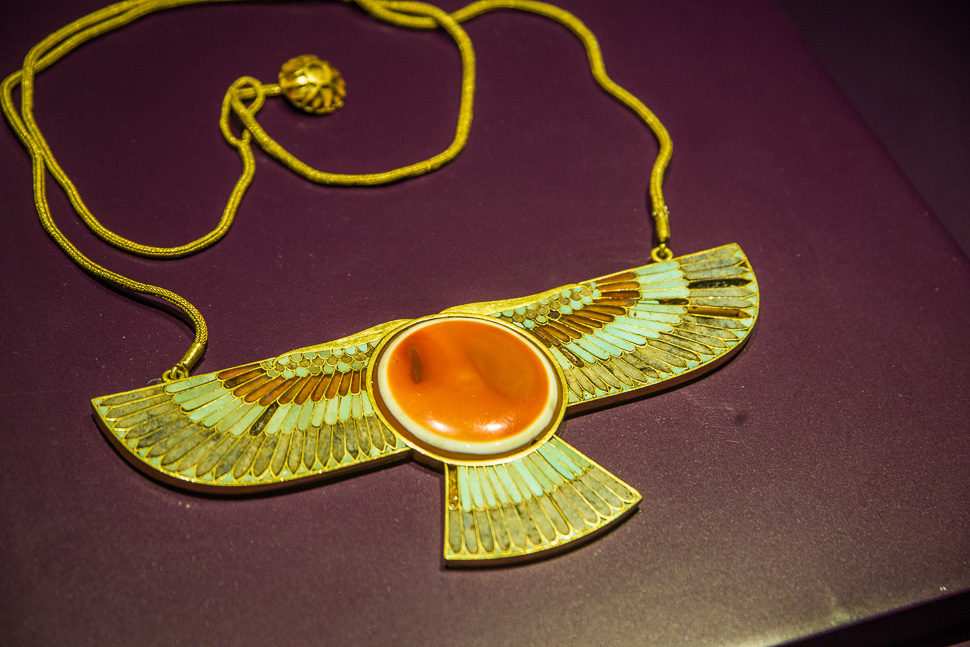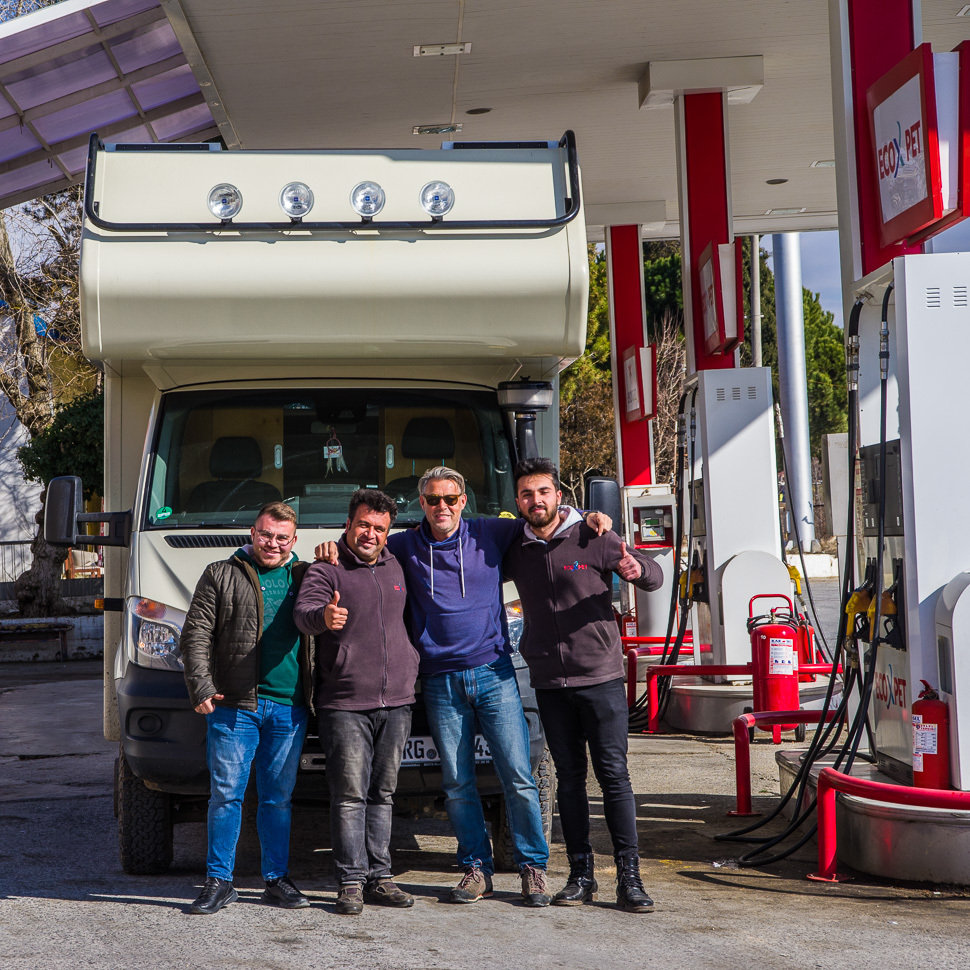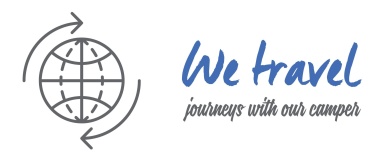On our way across western Turkey we came through Uşak, where the treasure of Croesus is exhibited at the local museum. For sure worth a stop and a break from driving.
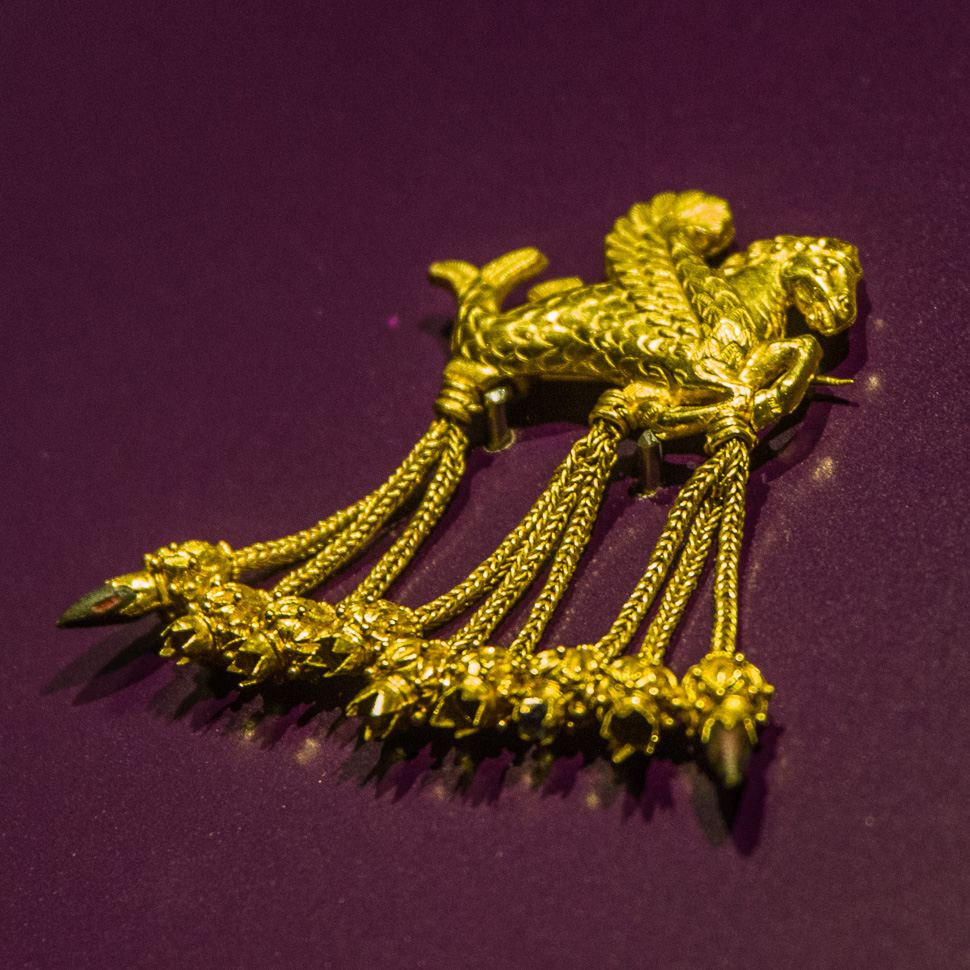 |
| Golden hippocamp |
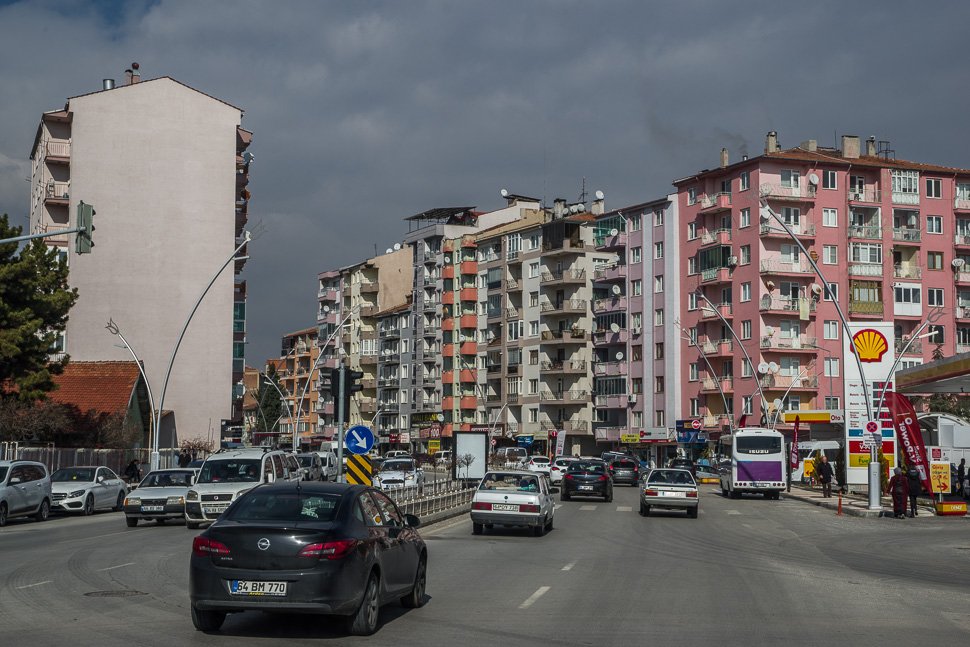 |
| Uşak – a capital of 500.000 inhabitants |
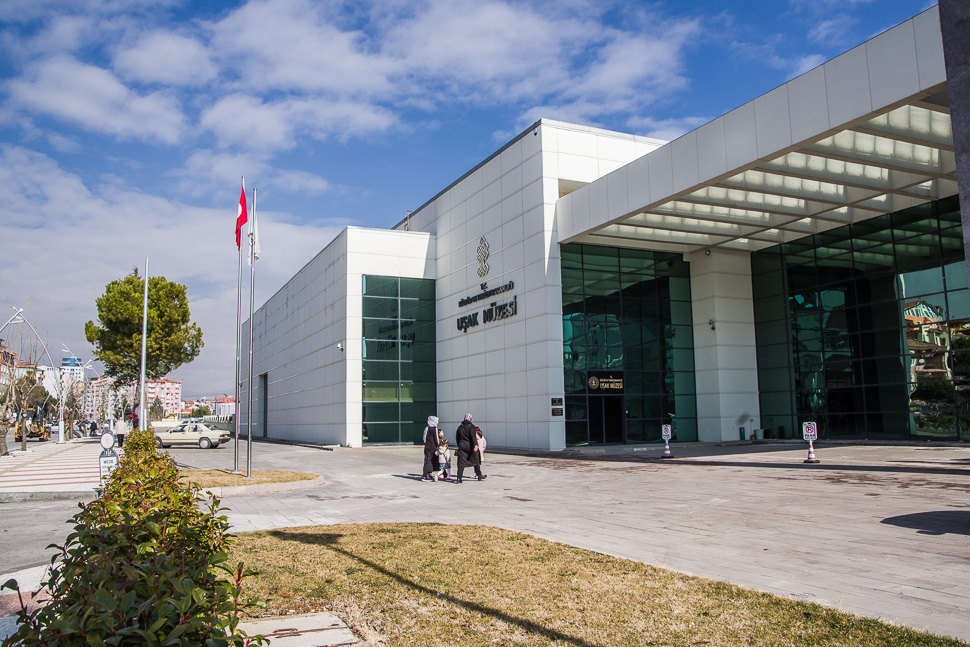 |
| The newly built museum to display the treasure |
This treasure is a collection of 363 valuable Lydian artefacts dating from the 7th century BC and originating from Uşak Province. It was the subject of a legal battle between Turkey and the New York Metropolitan Museum of Art between 1987–1993 and was returned to Turkey in 1993 after the Museum admitted it had known the objects were stolen when they had purchased them. Although the artefacts were closely contemporary to Croesus, whether they should be directly associated with the legendary Lydian king or not remains debatable.
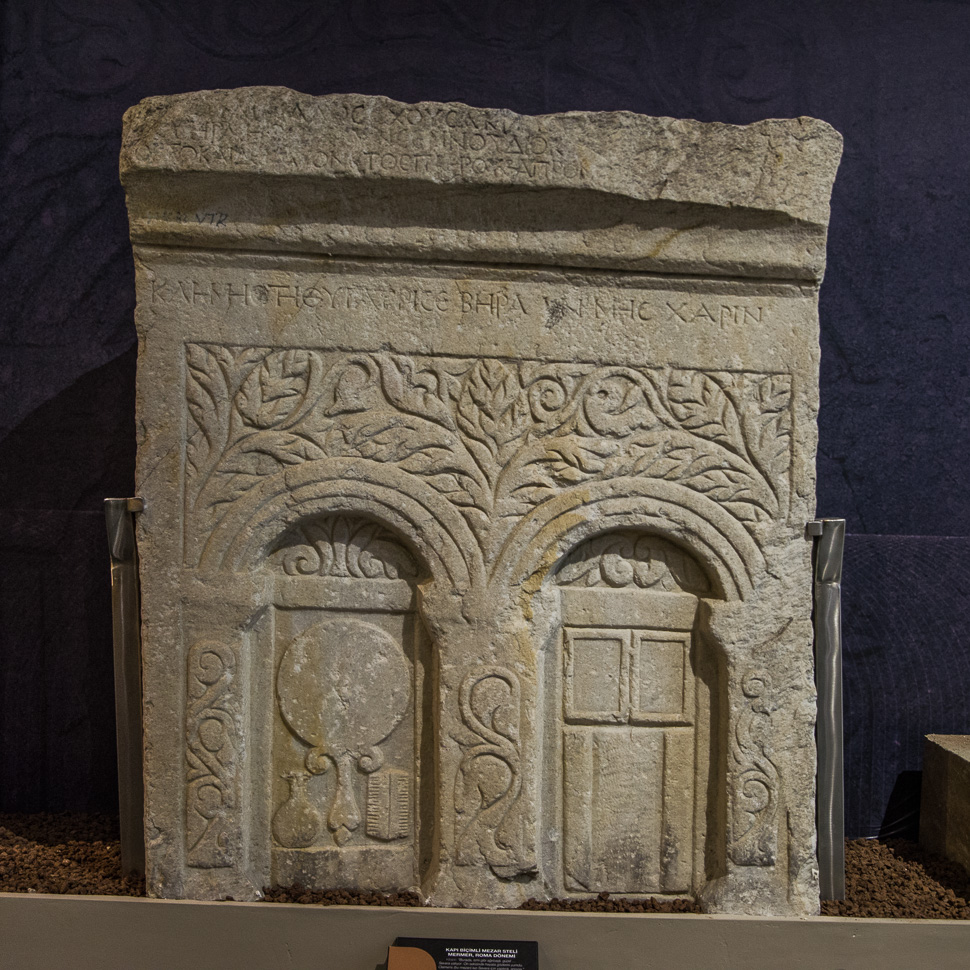 |
| Door of a tomb displaying things like a mirror, a comb and a bottle of perfume. |
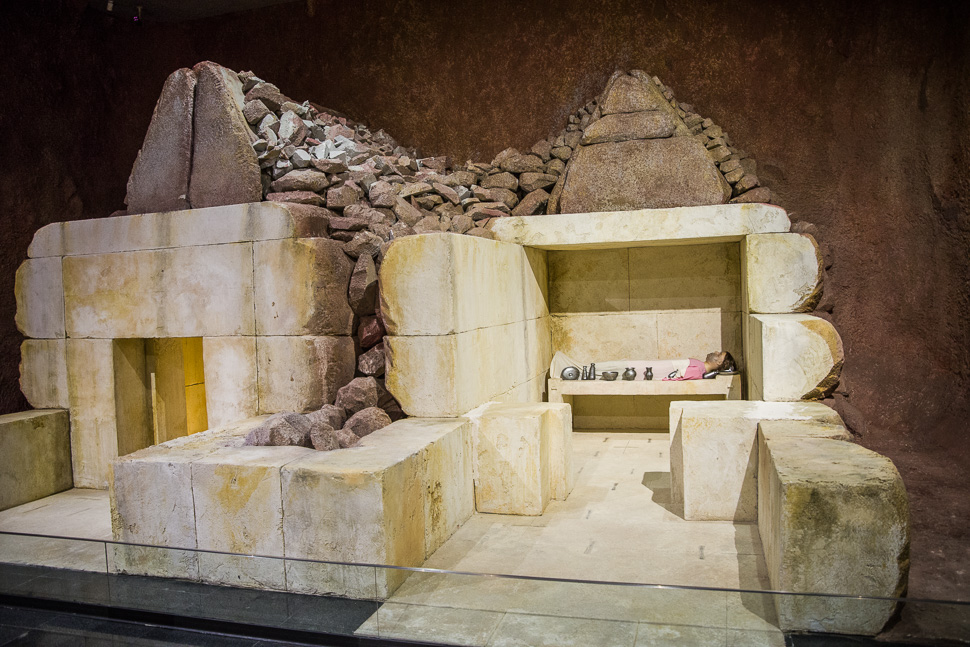 |
| Reconstruction of a tumulus |
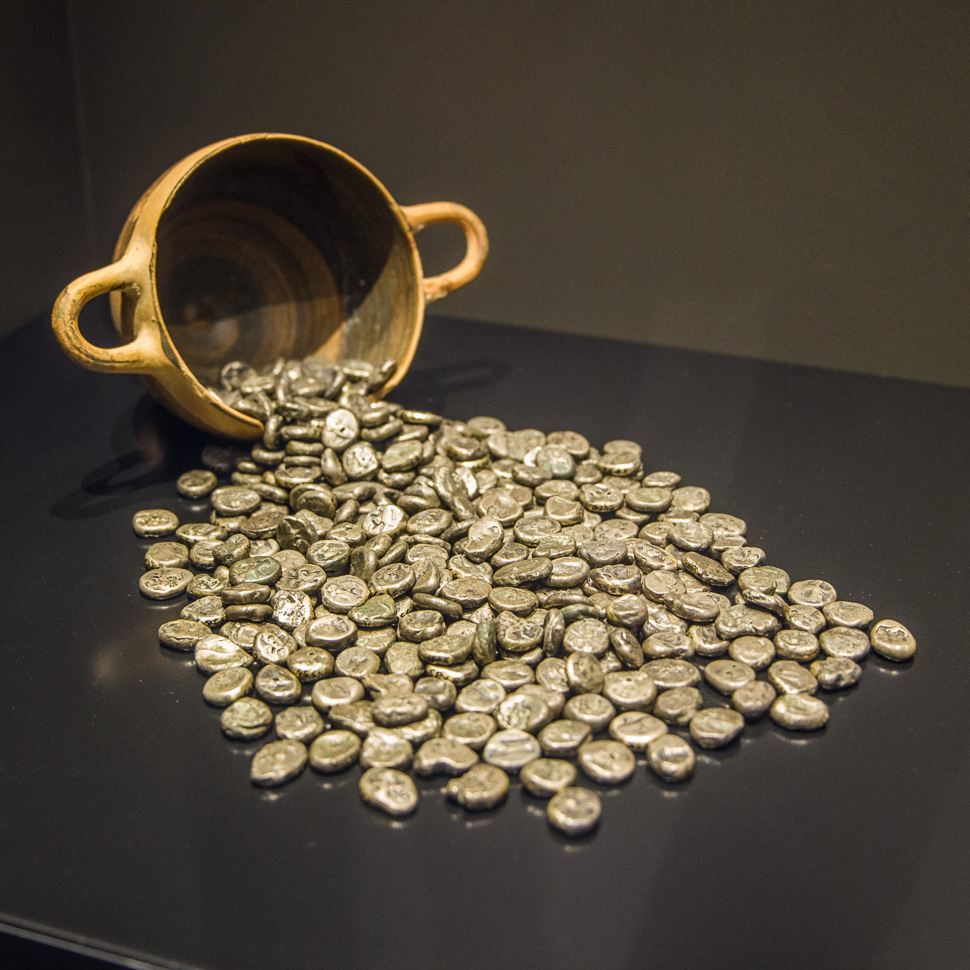 |
| The treasure of Körez – 336 pieces of the Persian Empire coins – 5th century BC |
Croesus was the king of Lydia who reigned for 14 years: from 560 BC until his defeat by the Persian king Cyrus the Great in 546 BC. In Greek and Persian cultures the name of Croesus became a synonym for a wealthy man. His wealth remained proverbial beyond classical antiquity: in English, expressions such as “rich as Croesus” or “richer than Croesus” are used to indicate great wealth to this day.
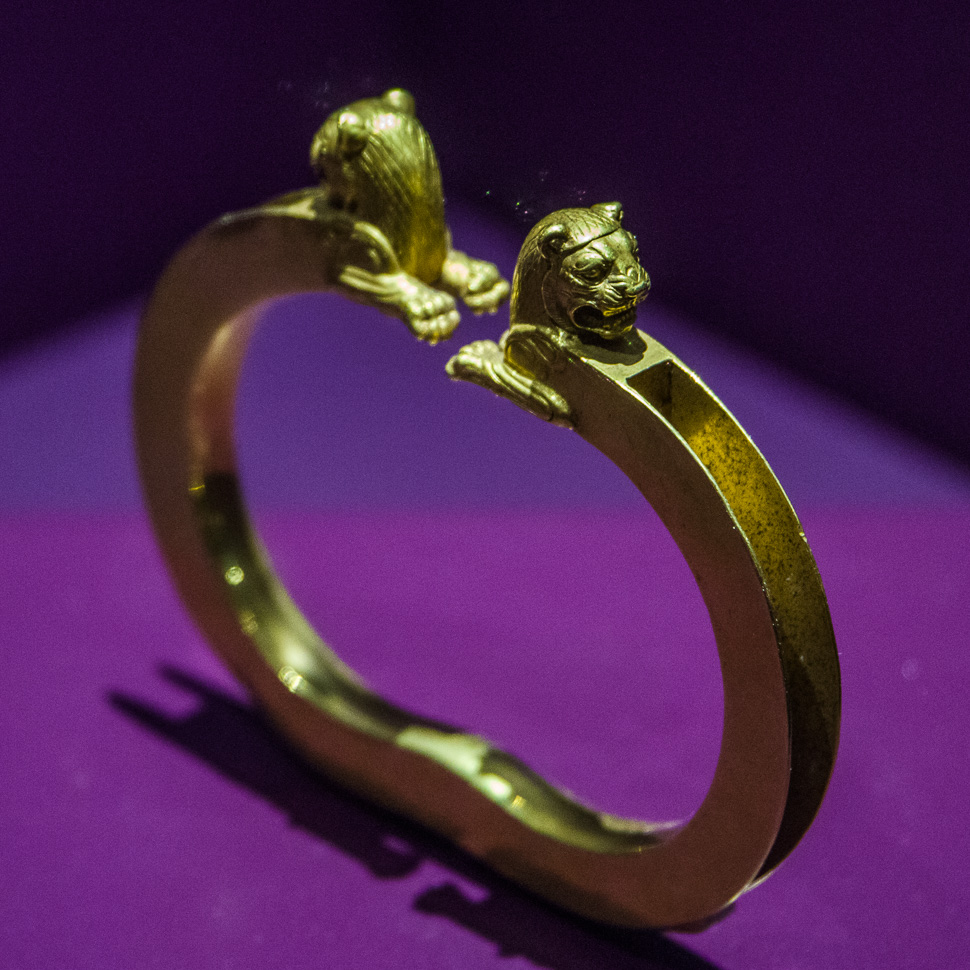 |
| Bracelet with lion heads |
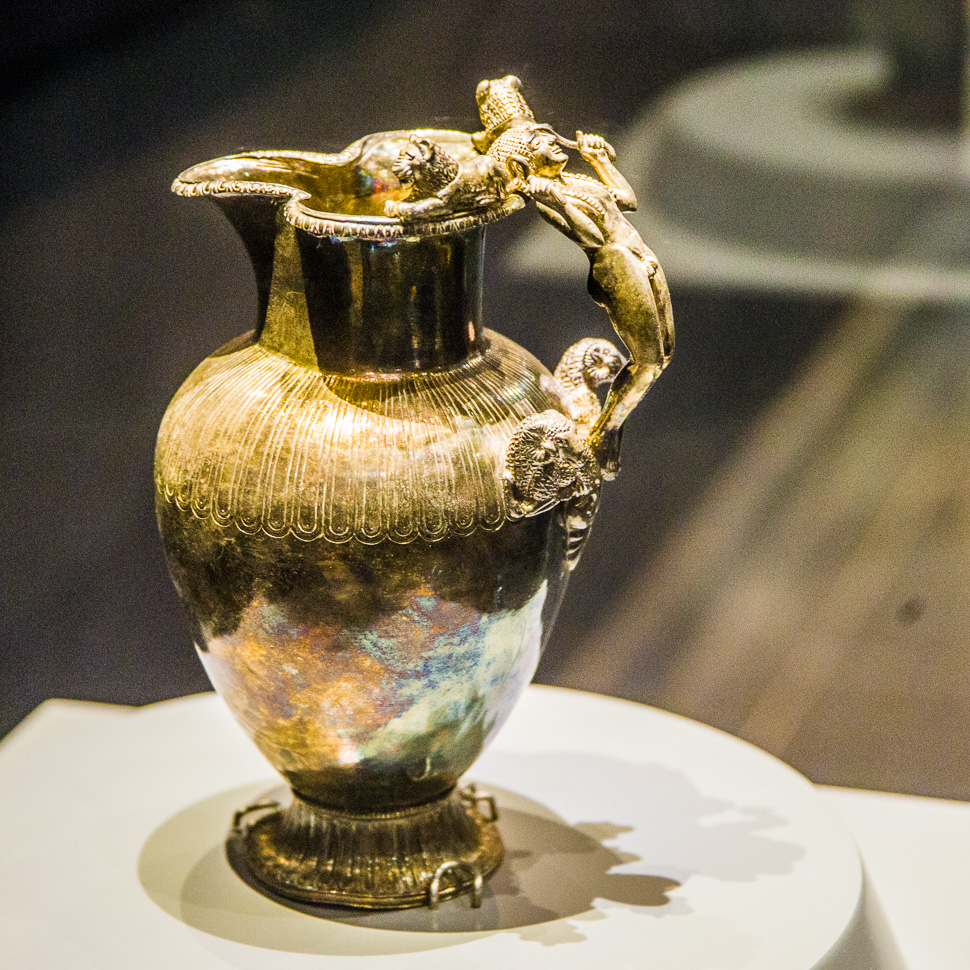 |
| Jug from the Lydian treasure |
The main source of Croesus’s wealth was the white gold carried by the river Paktolos from Mt. Tools flowing through Sardeis. Excavations at Sardeis have brought to light refinery facilities capable of refining hundreds of kilos of gold annually dating to the mid-sixth century BC.
After the museum we found a nice restaurant just a short walk into town at the main crossing. After lunch we drove on but stopped for a refill just outside of Uşak where we met these nice guys who really liked our caravan.

